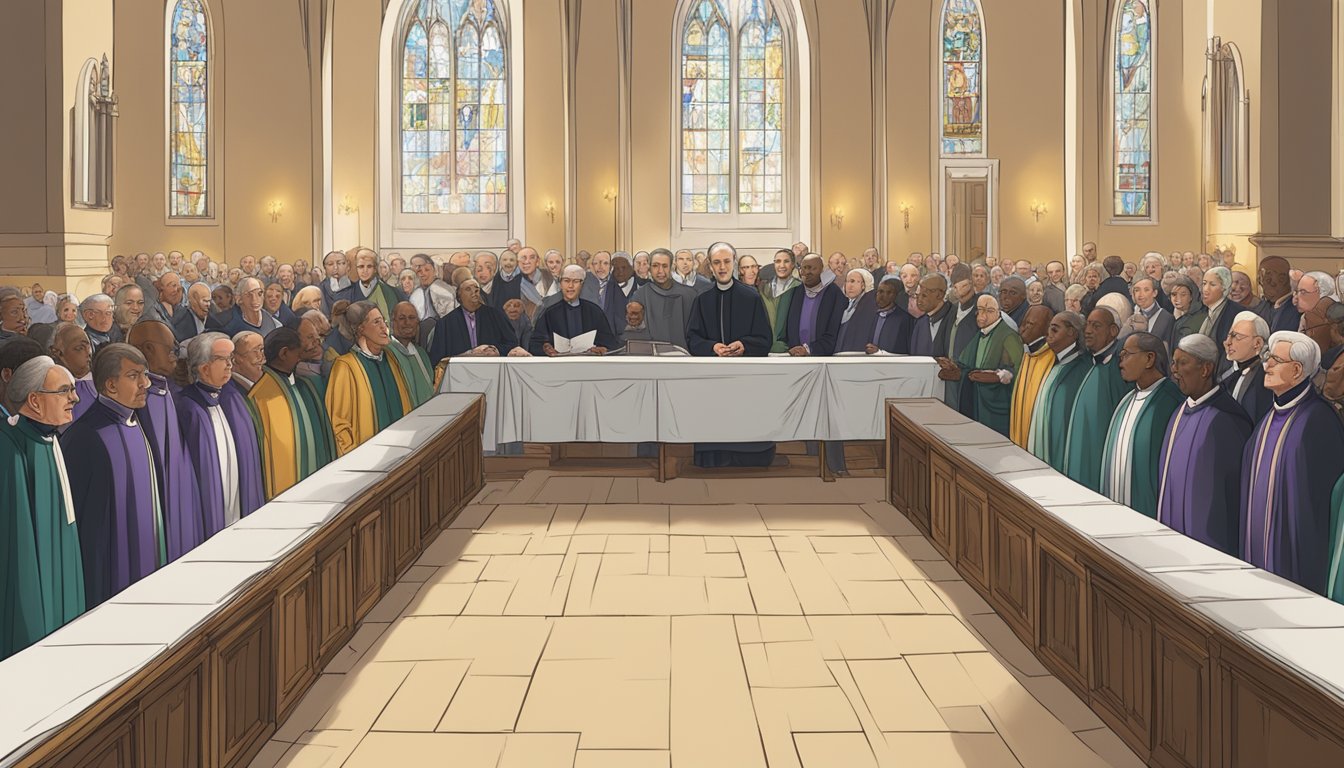Don’t Miss Out On This Unique Astrological Opportunity
Are you tired of spinning your wheels and getting nowhere? Simply put, you’re out of sync: you’re out of alignment with your astral configuration.
But: there’s a kind of map that can help you reclaim your alignment. Think of it as your own personal blueprint to success and happiness: a blueprint that will help you live your most amazing life.
Get started here.
Recent safeguarding challenges and allegations of cover-ups within the Church of England have alarmed bishops in the Diocese of Norwich.
In a collaborative statement, Rt Rev Graham Usher, the Bishop of Norwich, joined forces with the suffragan bishops of Thetford and Lynn to express their deep concerns and highlight the shortcomings of current safeguarding measures.
Concerns and Accountability
This statement comes on the heels of the Bishop of Liverpool’s resignation earlier this week.
He stepped down amid serious allegations of sexual assault and harassment, which he has denied.
In their declaration, the bishops acknowledged the progress made in safeguarding over the years but emphasized their commitment to discussing further enhancements at the upcoming Synod in a few weeks.
They voiced specific concerns regarding the effectiveness of current responses to safeguarding issues and stressed that those making significant decisions must be held accountable for their actions.
Call for Reform
The bishops welcomed the forthcoming debate at the General Synod in February.
This discussion will focus on establishing independent oversight of safeguarding protocols, improving governance within the national church, and reforming how complaints regarding clergy misconduct are handled.
Reflecting on the strides made by the Diocese of Norwich and the Church of England more broadly over the last decade, the bishops pointed out the establishment of dedicated safeguarding teams in every diocese.
They also mentioned the introduction of independent chairs for safeguarding boards, mandatory training for all ministry-related personnel, and the role of parish safeguarding officers.
They expressed gratitude for the ongoing support from individuals advocating for safeguarding measures across the diocese.
Encouragement for Open Communication
However, they also acknowledged that recent allegations at a national level have understandably shaken trust and had a negative impact on local communities.
This discontent persists despite positive efforts to spread the Gospel and support community needs.
The bishops noted how damaging narratives can resurface trauma for individuals who have faced abuse in the past.
The clergy emphasized the importance of transparency and accountability in addressing these concerns to rebuild trust within the community.
Some leaders fear that dwindling confidence could affect charitable initiatives, as Catholic groups warn of aid freeze if public sentiment continues to decline.
In response, the bishops called for open dialogue and renewed commitments to safeguarding measures to prevent further harm.
In closing, the bishops encouraged members of the diocese to contact the safeguarding team with any concerns they might have.
They emphasized the importance of open communication in fostering a safe and supportive environment for all.
Source: Premierchristian.news



